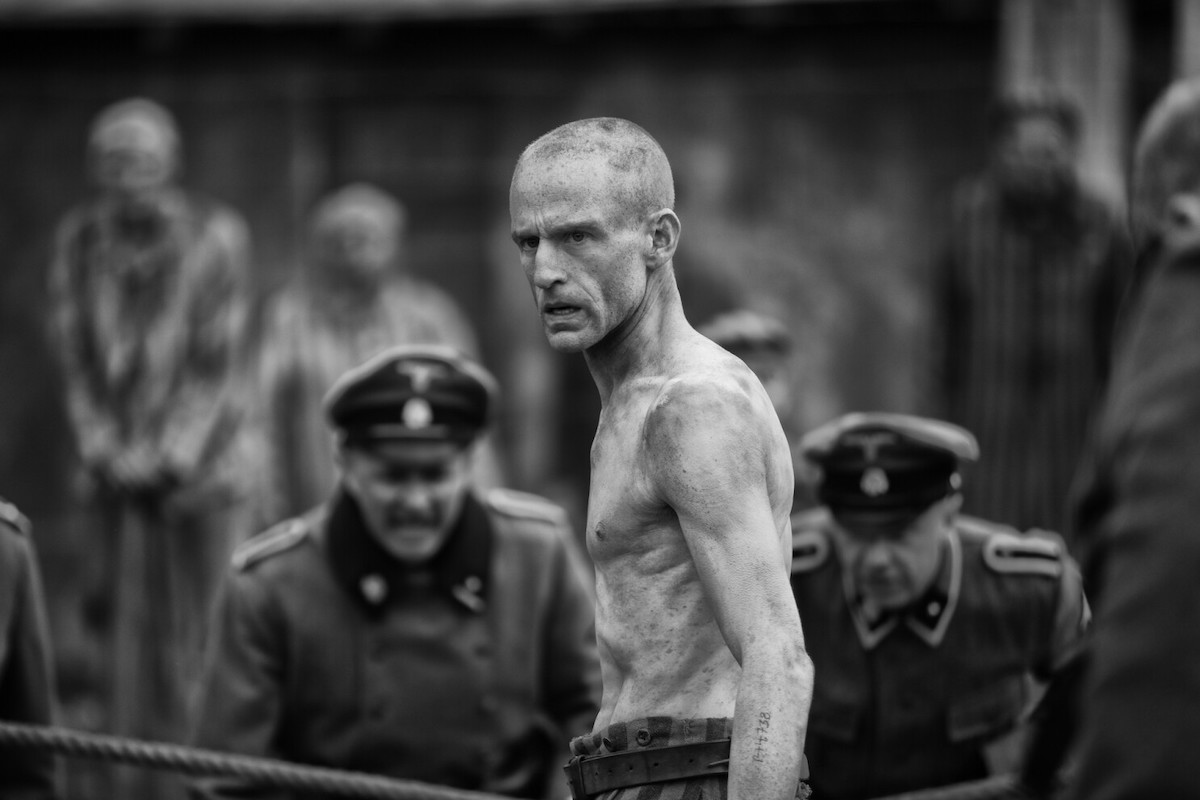Barry Levinson is 80. The Oscar-winning writer-director has played a part in several of the best movies and TV shows of the past half century—and a few of the worst.
That pattern of mixing abominable stinkers with memorable successes has continued into the past decade. In 2014 he came out with The Humbling, an Al Pacino vehicle about a once-famous actor dating a bisexual woman one-third his age. There’s a reason you haven’t heard of it. The next year saw the release of Levinson’s Rock the Kasbah, a comedy starring Bill Murray, which was set in that famous palace of laughs, Afghanistan. It has a 7% rating on Rotten Tomatoes.
The son of a Baltimore furniture salesman, Levinson got his start as a comedy writer (The Carol Burnett Show) and actor, and he has tended to be at his best in depicting ordinary people with affectionate amusement. That was the spirit with which he directed what remain his two finest movies, both of which are set in “Charm City”: Diner and Tin Men.
So the fact-based holocaust drama The Survivor must be regarded as a notable departure from anything he has done previously. While it is the 24th film Levinson has directed, it’s only the sixth that was not a comedy, and none of those dramas asked much of their audiences. Included on that list are the sci-fi action flick Sphere and the B-thriller Disclosure. Starring Sharon Stone and Demi Moore respectively, they were the kind of pictures that remind you of that oft-quoted comment about Ben Affleck’s Paycheck: It was the most aptly titled movie ever made. Much better regarded are The Natural and Rain Man. Yet both Levinson films are slick, commercial offerings that are as challenging and “difficult” as cat videos.
I confess that I am among the not-so-large number of people who have an instinctive dislike for Holocaust movies. What bothers me about them is that they typically offer audiences an easy path to self-congratulation. Viewers are not asked to consider the possibility that they might have become enmeshed in the activities of a regime like that of the Nazis. Instead, they get to remind themselves that they think anti-Semitism and racism are wrong and would never have done anything like those baddies wearing those pale green uniforms and swastikas did.
The Survivor is manipulative at times, but it is not that kind of film. Based on a nonfiction book by Alan Scott Haft, it looks at the life of the author’s father, Harry Haft. A talented light-heavyweight boxer, Haft managed to survive at a Nazi death camp by fighting with other inmates. This served as a source of amusement for the guards. Haft knew that each time he defeated another camp member in the ring, he was arranging for that man’s death, even as he secured his own chance to live for another week. As Scheherazade had to continue her story each night to avoid execution, Haft had to remain unbeaten. In telling this story, the film is asking its audience to reflect on fundamental questions of morality, compelling us to consider the degree to which we are all capable of complicity in evil.
The script, by Australian TV writer Justine Juel Gillmer, is sometimes loose with the facts. Thus, one of the central characters, a reporter played by Peter Sarsgaard, is an invention, and the main romantic storyline of the film, which revolves around an American woman (Vicky Krieps) assigned to help Haft (Ben Foster) find his long-lost love from the Old World, is quite different from the actual figure.
But many elements of the story are true. Haft seems indeed to have defeated something on the order of 70 camp sparring partners, men who were then gassed, incinerated, or otherwise murdered, and he lived with the attendant guilt and shame for the rest of his life. To the same degree, Haft really did fight Rocky Marciano, battling effectively against the future undefeated heavyweight champion for the first two rounds of their bout.
The best thing about the film is its performances. Levinson has stuck around as a director as long as he has partly because of his skill at eliciting great work from great actors, and all the members of his cast are outstanding. This includes not only Foster in the role of the troubled prizefighter but also Danny DeVito as a Jewish trainer working for Marciano who secretly offers Haft useful tips, Krieps, and Israeli actress Dar Zuzovsky in a critical but small cameo toward the film’s end. The subtle and affecting acting is enhanced by Levinson’s direction, which is modulated and unobtrusive, and Hans Zimmer’s understated score.
Levinson also makes the sensible decision to present the concentration camp flashback sequences in black and white and the later scenes in full color. This reduces the number of shock effects that might have resulted from each occasion when Haft bloodies a rival in the ring. The Survivor effectively toggles between the past and the present, gradually revealing to us what Haft felt and did and why he is unable in the aftermath to live in peace with himself.
This is not to say that the movie doesn’t have false notes. One of the worst is surely the most dated: The Nazis in the movie speak English with German accents. (Shouldn’t that have gone out with Colonel Klink on Hogan’s Heroes?) Levinson also chooses to make a literal black and white villain of the Nazi officer (Billy Magnussen) who decides to take Haft out of his work unit and make use of him as a camp “entertainer.” In Alan Scott Haft’s book, the character is portrayed with much greater complexity.
There’s also the matter of Foster’s size. When he’s speaking or, more often, sullen and full of rage, we can’t help but be impressed by the actor’s power and honesty. And, unlike so many men who have played boxers, he has fast hands. But they’re obviously the fists of a middleweight or even a welterweight. Though Haft himself was of similar size, you never get the sense you’re watching a serious heavyweight contender. (And, of course, it’s impossible not to draw comparisons with Raging Bull, especially given that Foster gained and lost an enormous amount of weight to play Haft at different times in his life. The Scorsese film, however, still retains the “boxing movie against which nearly all screen studies of pugilism are compared” title.)
The occasional moments when this fakery and hokum appear keep the movie from greatness. Yet there’s a truthfulness in the acting and in what the movie is inquiring of us—about morality and the possibility of keeping one’s religious faith in the aftermath of great tragedy—that’s real and affecting. Touching, too, is the ending, which is not what most of us expect of a current Hollywood movie. As the hero has come to realize that he has been blessed in his decision to come to the United States and make a new life here, the film concludes with a rendition of “God Bless America” sung in Yiddish.
If The Survivor is Levinson’s valedictory film, it’s a worthy and ambitious one, imperfect though it is.

